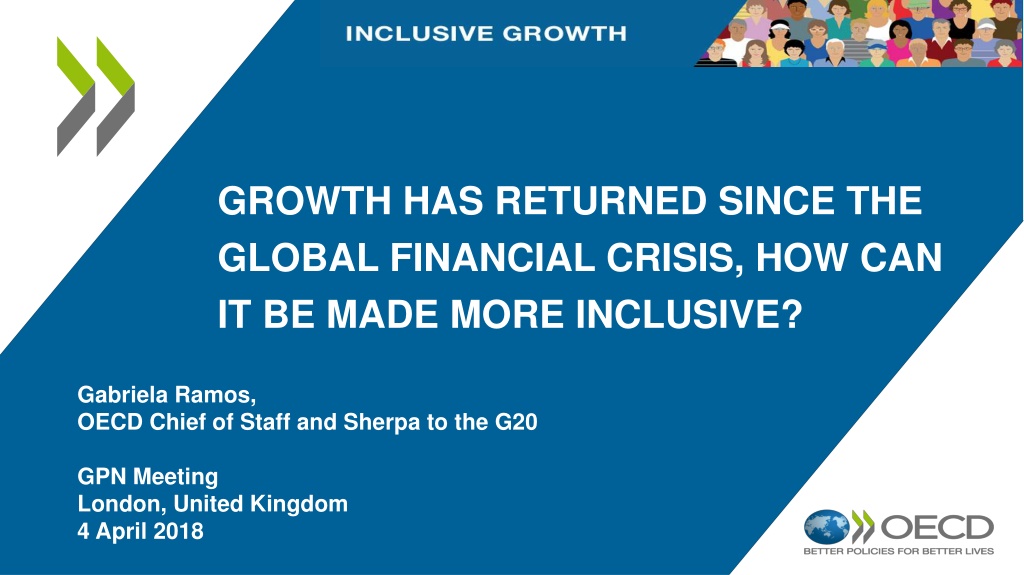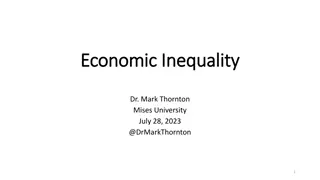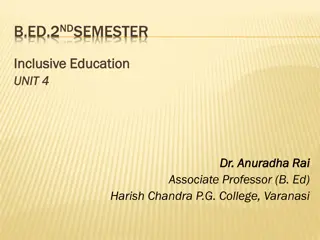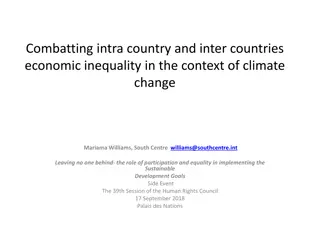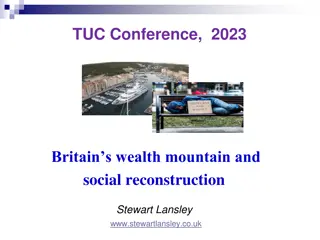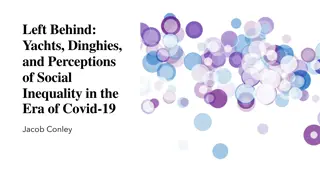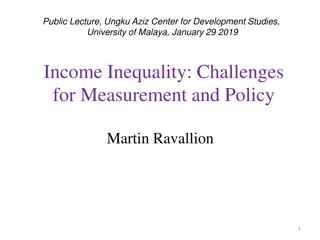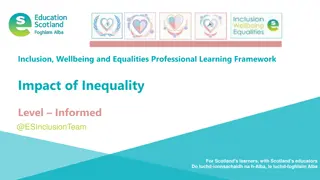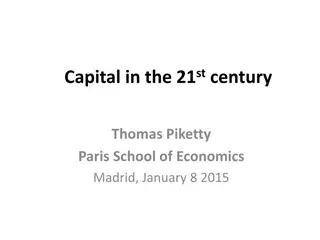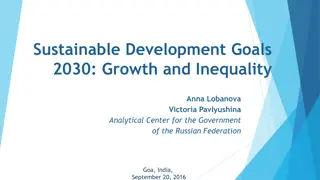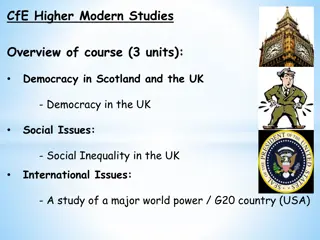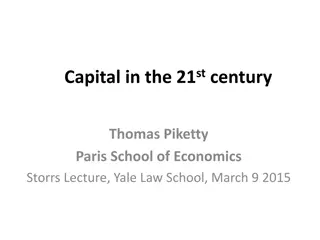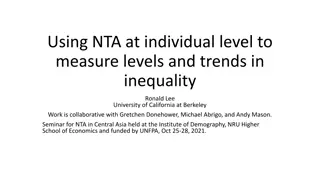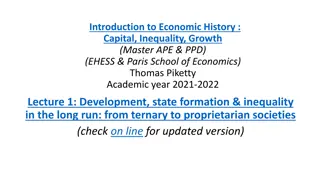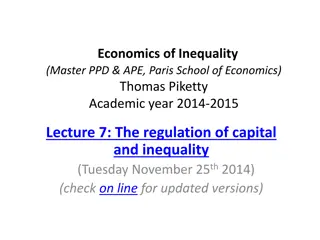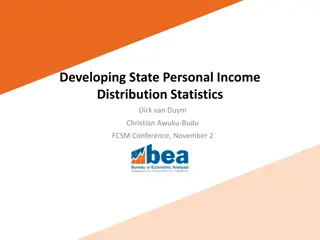Addressing Inequality for Inclusive Growth
In the quest for inclusive growth post the global financial crisis, it's crucial to tackle the widening income gaps and gender wage disparities. The issue of inequality impacting life chances, especially in education, needs attention. Suggestions include shifting the growth narrative to focus on people-centered policies, prioritizing the Bottom 40% income group, enhancing social protection measures, and anticipating new sources of inequality like the Digital Transformation. Affordable housing remains a key concern in fostering equal foundations for inclusive growth.
Download Presentation

Please find below an Image/Link to download the presentation.
The content on the website is provided AS IS for your information and personal use only. It may not be sold, licensed, or shared on other websites without obtaining consent from the author.If you encounter any issues during the download, it is possible that the publisher has removed the file from their server.
You are allowed to download the files provided on this website for personal or commercial use, subject to the condition that they are used lawfully. All files are the property of their respective owners.
The content on the website is provided AS IS for your information and personal use only. It may not be sold, licensed, or shared on other websites without obtaining consent from the author.
E N D
Presentation Transcript
GROWTH HAS RETURNED SINCE THE GLOBAL FINANCIAL CRISIS, HOW CAN IT BE MADE MORE INCLUSIVE? Gabriela Ramos, OECD Chief of Staff and Sherpa to the G20 GPN Meeting London, United Kingdom 4 April 2018
Whats the issue? The top earners are pulling away from the rest Wages of top 1% of income earners diverged from the average and the median (OECD average, 1995-2012) Wages decoupled from labour productivity (OECD average, 1995-2013) 150 150 Top 1% earners 140 140 Labour productivity 130 130 Average (real compensation) Average 120 120 Median (real compensation) 110 110 Median 100 100 1997 2004 1995 1996 1998 1999 2000 2001 2002 2003 2005 2006 2007 2008 2009 2010 2011 2012 1995 1996 1997 1998 1999 2000 2001 2002 2003 2004 2005 2006 2007 2008 2009 2010 2011 2012 2013 Source: OECD (2018 forthcoming), The Framework for Policy Action on Inclusive Growth. 2
Gender wage gaps have changed little since 2010 and remain substantial Median monthly gender pay gap for full-time employees OECD (2017), Bridging the Gap 3
Inequalities impact life chances Likelihood of educational attainment if neither parent has attained upper secondary education Tertiary Lower secondary or less 1 0.9 0.8 0.7 0.6 0.5 0.4 0.3 0.2 0.1 0 OECD (2017), Bridging the Gap. Secretariat calculations using OECD PIAAC 4
How to do it? Change Growth Narrative to a people s centred one: Focus on NEXUS. Look at specific policy levers: quality education, quality jobs, investment in regions, housing, Early childhood education, Prioritize polices that benefit the Bottom 40% of the income deciles. Strengthen Social Protection (tax and transfers) and Social Dialogue. Children, Youth, Women, Ageing. Anticipate new sources of Inequalities: the Digital Transformation (skill biased; patent concentration; skills mismatch, training, AI and data, frontier firms). 5
Inclusive Growth Framework Equal foundations? Affordable housing remains a concern Households' housing cost burden (median mortgage and rent cost) (% of disposable income, 2014 or latest) Rent (private and subsidized) Owner with mortgage 50% 40% 30% 20% 10% 0% Source: OECD (2018 forthcoming), The Framework for Policy Action on Inclusive Growth. 6
Framework for Policy Action on Inclusive Growth in a broader inclusive growth context PILLAR 1: Contribute to growth & benefit from it Creating growth | Distributing well-being & assets | Accessing resources & markets Boosting growth, business dynamism & tech- diffusion Aligning IG policies across the government Promoting life-long learning & skills Increasing social mobility Empowering state for strong & inclusive growth Achieving inclusive labour markets Screening policies for inclusiveness impact & accountability Establishing low-carbon and resource-efficient economy Improving material and non-material well-being PILLAR 2 Create inclusive markets & work PILLAR 3 Invest in people & places PILLAR 4 Re-build trust in government Context: Globalisation, digitalisation, demographics & climate change 7
Thank you! Gabriela Ramos OECD Chief of Staff and Sherpa to the G20 Contact: Gabriela.ramos@oecd.org Follow me @gabramosp For more details on the OECD and the Inclusive Growth Initiative, see http://www.oecd.org/inclusive-growth/ 8
